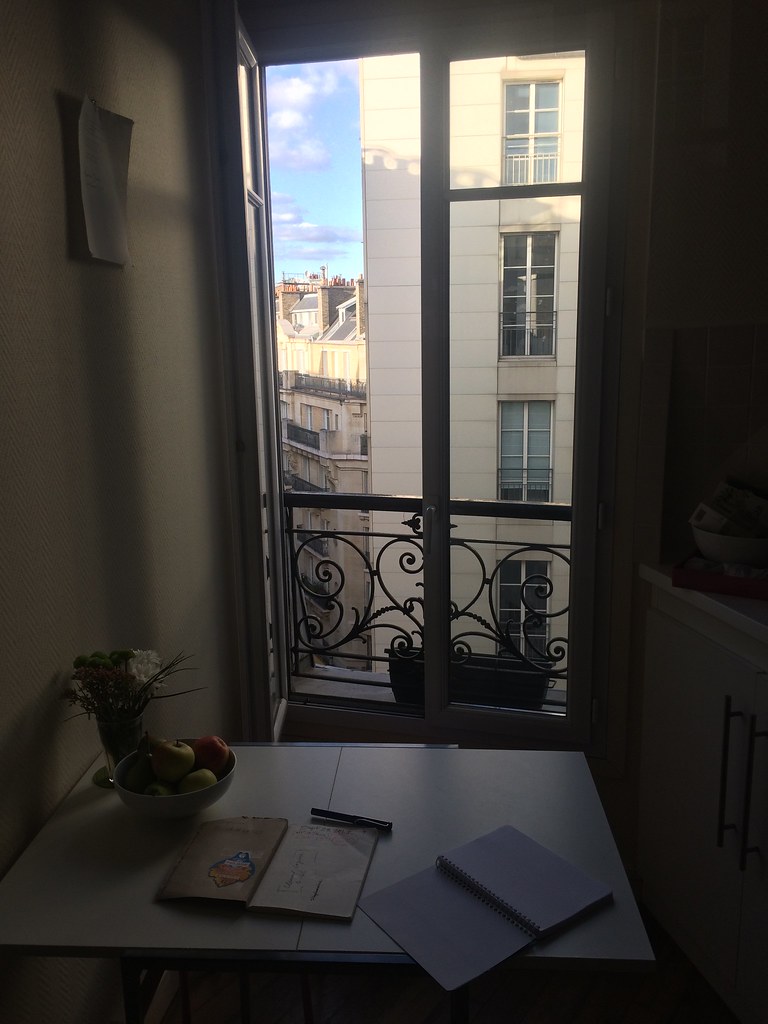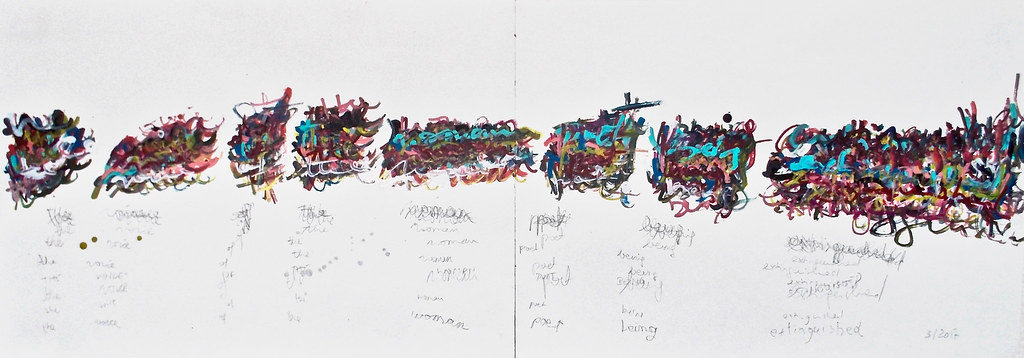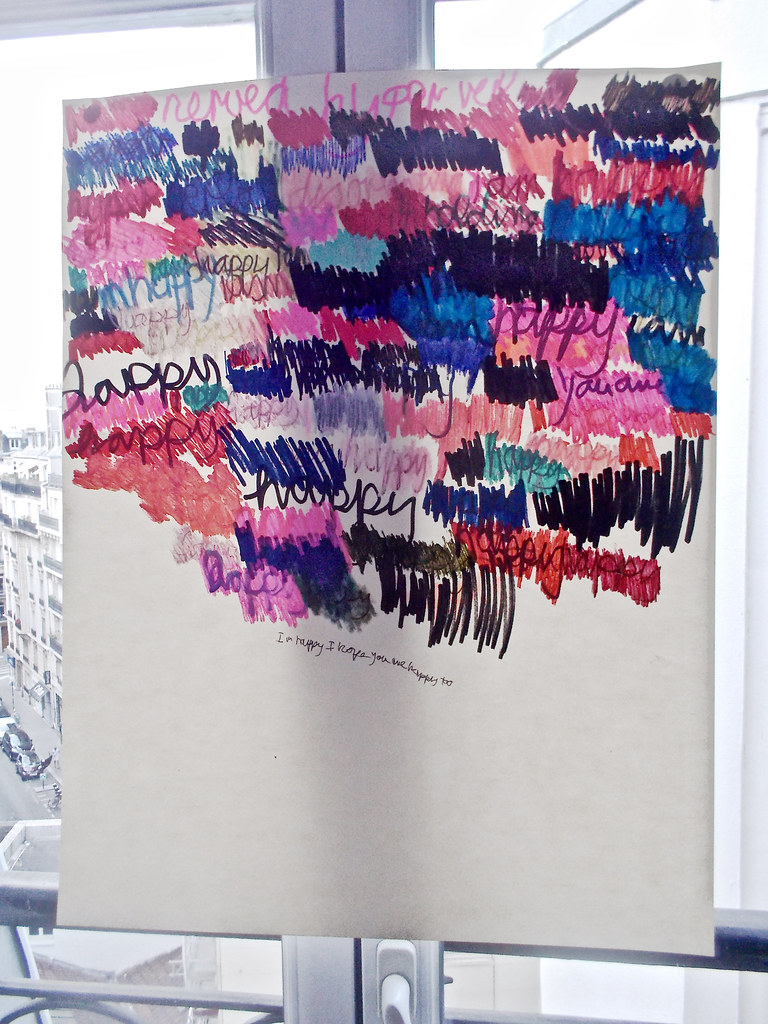08 Nov - 13 Dec 2017
“Parisian itineraries. Leisurely strolls quite obviously (and fortunately) unknown to the tourist trade, for there is nothing to see on these routes except for poetry in the rough, which paying travelers would never appreciate: the poetry of masonry, cobbles, boundary stones, carriage entrances, dormer windows, tiled roofs, patches of grass, odd trees, dead ends, byways, blind alleys, inner courtyards, storage sheds for coal or building materials, wreckers’ yards; the poetry of workshops, still vacant lots, bowling alleys, bistros-cum-refreshment stands; the poetry of colors but also of smells, a different smell for every doorway. Serpentine itineraries winding on endlessly, interminable itineraries open to anyone who knows how to wander and how to look.” - Jean-Paul Clébert, Paris Vagabond
The last time I took a long trip out of the country I was in Buenos Aires by myself in 2013. Since then I’ve mostly traveled with friends, or alone to places where there would certainly be a lot of my friends, and for that I’m very thankful. But these were the same friends who when I got back from Argentina asked me, what did you do? And then they didn’t believe me when I told them, well I really just walked around. I wrote. I read five or six books.
I understand why they don’t believe me because these are the same friends that see me at three A.M. ready to go on to the next spot, or back to my house. When I’m around people I’m lively. I like chatting. I like drinking. I like being upright for as long as possible. But when I’m alone I revert back to my early childhood years of solitary observance. I always have a book with me, and I can walk for hours on just one cup of coffee. I pass up long dinners for a loaf of bread at home or in the park maybe. I take my book to bed with me shortly after 10P.M. and I’m up with the sunrise at 7. No one ever believes me. But because I love people I love travelling to places where I can be alone, sitting in a cafe surrounded by couples having their intimate conversations. To walk past doorways where someone is cooking dinner. To smile graciously at strangers. It’s one of the reasons I love New York, it’s easy to feel alone, but comfortable. Alone but like you belong in the busy world around you.
The apartment in Paris is perfect. Things seldom look just like their pictures but this place does. As soon as I got here I flung open the double glass panes of the window. Light lit up the hardwood floors. I did something I haven’t done in a very long time- I unpacked. Every single piece of clothing. I lined my books up. I plugged everything in. Then I went out to my favorite tea store (Kusmi teas are in my cupboard at home too) and the market where I filled the kitchen with the things I needed (bread, good olive oil, goat cheese, yellow tomatoes, Bordeaux) and I went to sleep. I woke up at 3A.M, jetlagged and happy. I opened my computer, and I started writing. My friend sent me a roll of film he took when he was in Paris with his band over the summer. I studied his pictures and I wrote accompanying poems. In the real, after breakfast, morning I set off to find those places.
It’s hard not to think of oneself as being monk-like, with all the Catholic imagery carved into almost every stone on almost every corner. But for someone that doesn’t usually have a routine, it seems appropriate. Normally in my week I work late hours at a bar, usually have a drink or two with my coworkers after and if I’m lucky make the smart decision to go home and answer emails or read. Sometimes there’s just too much to do. In New York there’s always a show, or a friend in town. Then in the mornings I either have to run straight to work, either to the bar job or to edit poetry submissions for Hanging Loose Press, or I want to go to a museum or get lunch with a friend or just sleep in and order Chinese food with my boyfriend...sometimes it’s hard to find the time to do laundry, let alone write, or answer emails from friends, or send letters, etc. When you’re working and also in love suddenly there’s just less hours in the day. Here it’s the whole opposite. I wake up 7, I stretch out on the floor like an overweight, old cat (I will turn 32 here alone next week). I attempt to do some kind of derelict yoga. Then I make my Russian black Kusmi tea, answer emails and listen to NPR, and then drink more tea. I try to study French for the next hour either listening, writing, or talking to myself. Then the next two hours I write. I write two poems for myself, then three or four for Andy’s photos (I suspect we will have a zine put together by the end of the month!) then I try to work on an essay (like this one). After that the sun should be OUT, so I go out with it. I walk around buildings, sometimes going into museums, but nothing serious yet. I only sit down in restaurants for coffee, I haven’t given into a full meal yet since I’m still in love with the markets and my kitchen. Then when the sun is going down around 5, I come back and clean up. I do the dishes. I sweep. I wipe the counters. It feels good to have the time to be responsible for a space, and to my body and my inner self. Then in the late evening I read, drink more tea, and finally write until I think it’s at least a decent hour to go to bed. I don’t think anyone will believe me, but I will have the poems to prove it.
Keri Smith



